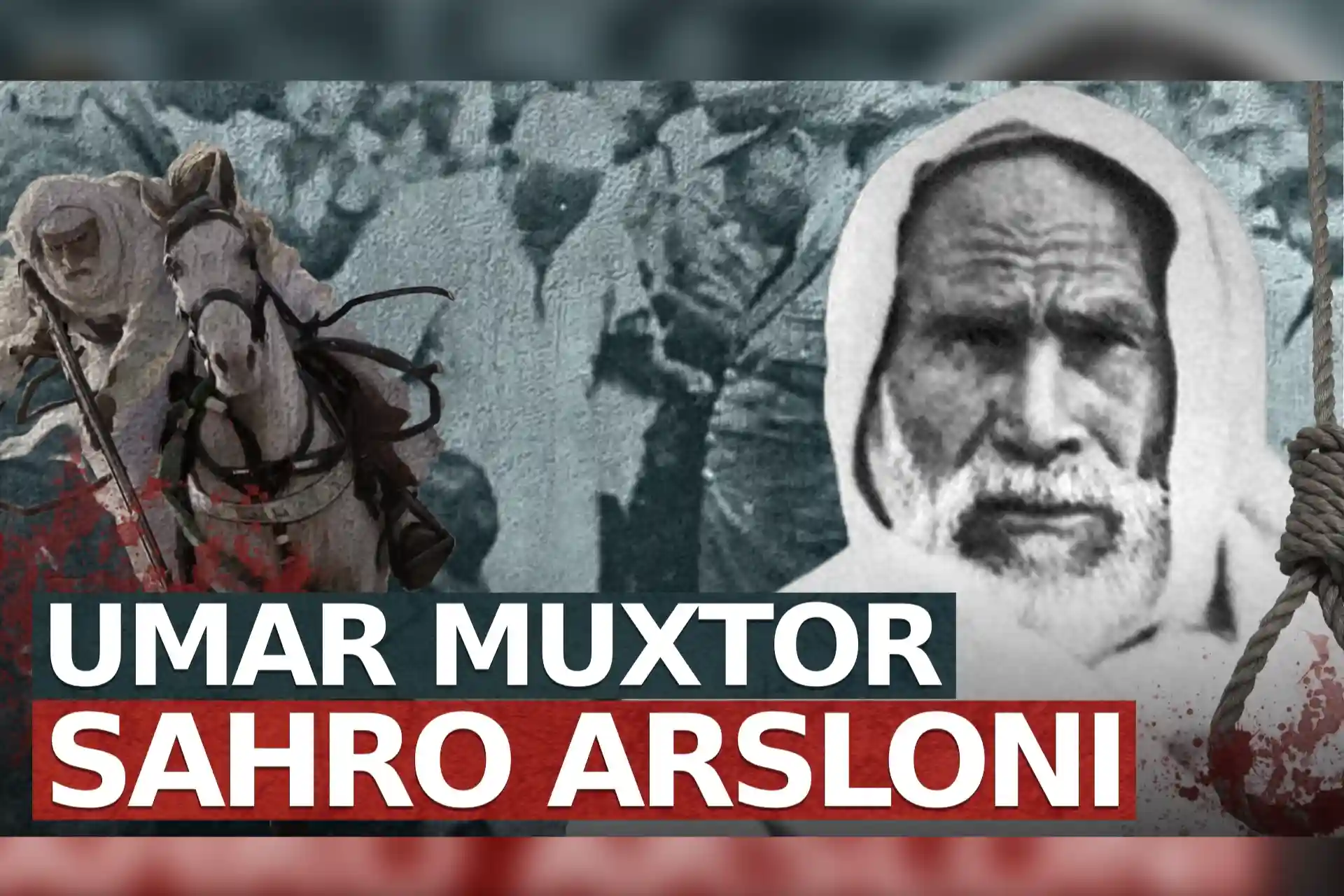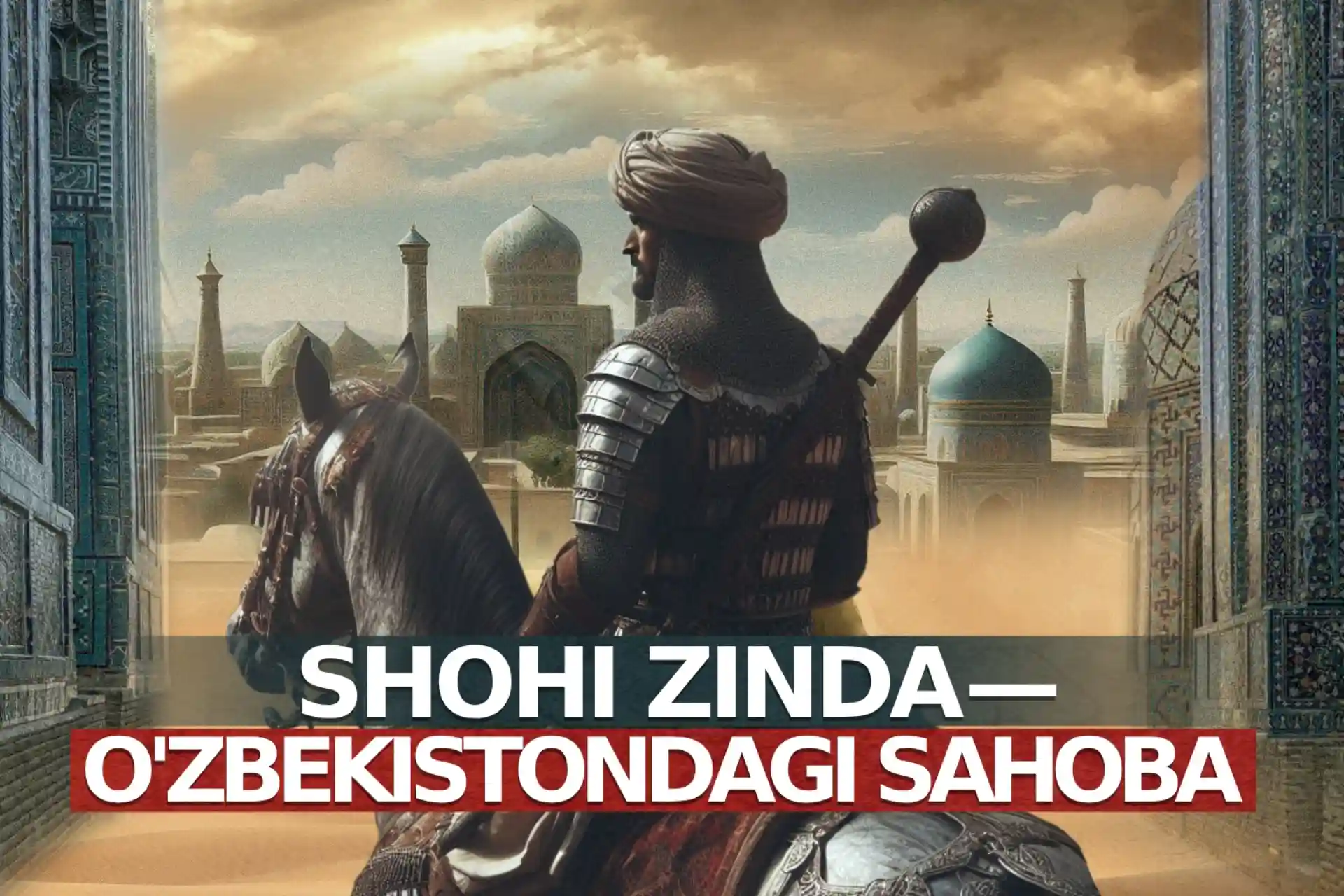Qutayba ibn Muslim and the spread of Islam to Central Asia
The full name of this general, who made an incomparable contribution to the spread of Islam in Central Asia, is Qutayba ibn Muslim al-Bahili, and his nickname is Abu Hafs. During the reign of the Umayyad caliph Walid ibn Abdul Malik, he was sent to Khurasan by the governor of Iraq, Hajjaj.
Qutayba conquered all of Central Asia in a short period of time - in 710-715, and managed to send ambassadors to the Chinese emperor.
In this study, we do not want to describe Qutayba ibn Muslim's conquests. After all , this issue has been adequately studied by Arab historians. We decided to dwell in detail on the evidence of this person's justice during the conquests and his contribution to the spread of Islam.
After the conquest of Bukhara, Qutayba ibn Muslim decided to build a mosque called "Moh Rooz" there. The place of this mosque was a place where Buddhist and Zoroastrian monks used to work for centuries, and twice a year a bazaar was opened there to sell expensive idols. Their price sometimes went up to fifty thousand dirhams.
Qutayba chose the same place for the mosque in order to stop this activity.
Another of the large mosques built by Qutayba in Bukhara was the Bani Hanzala mosque, in its place was a temple of fire worshipers. In another source, it is written that this place used to be a church of Nestorian Christians.
Another mosque built by Qutayba ibn Muslim is located near the Bani Sa'd gate and is called the Bani Sa'd Mosque.
At that time, there was a square called "Registon" in Bukhara, and Qutayba, seeing it lying empty, turned it into an Eidgah - a place for Eid prayers. Muslims gathered here twice a year - on the two days of Eid - to perform Eid prayers, to demonstrate to others that Islam is a religion of unity and solidarity and the power of Muslims.
In addition, Qutayba prohibited non- Muslims from carrying weapons during Eid in order to ensure peace. Muslim Arab families are moved to these lands so that the population can easily learn the rules of Islam. The reason is that until then , the people of Bukhara became Muslims under Qutayba, and after he left, they returned to their old religion. After this situation did not repeat itself, Qutayba came to the above decision. This , in turn , led local residents to learn the Muslim way of life through living examples and Islam became popular in a short period of time. He also monitored the implementation of Sharia rulings among Muslims, paid great attention to not allowing shortcomings in the implementation of Sharia rulings , and punished those who violated the rulings . This way was in line with the way of Prophet P and his four Rashid Caliphs.
As written in many history books, Bukharans did not protest in this case. After some time , when Umar bin Abdulaziz ascended the throne, the local residents objected to the decision to resettle the Arab families who were moved to Bukhara and other big cities in order to maintain stability in Movarunnahr, and expressed that they were satisfied with their life with the Arabs.
These and other efforts of Qutayba ibn Muslim soon began to bear their wonderful fruits. Islamic science began to develop rapidly in Bukhara, and thanks to the great scholars who emerged from this land, in particular, Abul Hafs Kabir Bukhari, Bukhara received the honorable name "Qubbatul Islam" - "the dome of the Islamic religion".
Qutayba ibn Muslim's efforts to spread Islam in Samarkand
Let's start with this interesting fact about this famous warlord's conquest of Samarkand. According to the story of "Ad-Dawlatul Umawiyya...", the Muslim troops led by Qutayba ibn Muslim al-Bahili directly conquered Samarkand , without first offering the local population a choice between accepting Islam, making a treaty, or going to war. After the locals learned that this was against Islamic law, they sent a letter of complaint to the caliph. Khalifa transferred the consideration of this case to the judge. The judge ruled that Qutayba and his people should leave Samarkand. This was the first verdict in the history of the world that the victorious people's judge issued in favor of the defeated people. Qutayba and his soldiers apologized to the people of Samarkand and left the city . Seeing this, most of Samarkand's population converted to Islam.
The first thing Qutayba ibn Muslim did here, even before he entered the city, was to build a Friday mosque. This was the first mosque built after the conquest of Samarkand. In the book "Samaria" it is said that the name of this mosque is "Masjid of Hazrat Khizr" and it is written that it was built by Imam Qutayba at the behest of Hazrat Khizr.
It is said in the work "Al-Kamil Fit Tariq" that: "After peace was concluded between the two, the Sogdians vacated the city. Muslims built a mosque there. Qutayba entered the city with 4,000 of his chosen men, prayed in the mosque and gave a sermon. After the meal, he said to the Sogdians: "Let the people who want to bring their property, I will not take anything except the peace that we agreed with you!" sent a message. It is clear from this incident that Qutayba is generous to spread the religion and that he is not a merchant of booty.
One of the things that this famous general did in Samarkand for the cause of Islam is to collect gold and silver decorated dates there . After those things were collected in one square (according to Tabari and Ibn al-Asir, the height of these objects was equal to a castle), when Qutayba ordered a fire to be lit to melt the dates, the Sogd king Gurak said to Qutayba: "If you burn the idols , you yourself will not survive." he wants to withdraw from this job. Qutayba responded by saying "Allah akbar" to the idols with her hand. and sets fire to it. The weight of melted gold and silver was 50,000 shekels (223 kg).
Acknowledging Qutayba's services to spreading Islam in different parts of Movarounnahr, Academician Bartold writes that "Qutayba built mosques in Bukhara, Samarkand and other cities", which confirms that the aim of this army was not only to conquer lands, but also to spread Islam.
He did effective work for the development of Islamic science in Movarounnahr: he established madrasahs in many cities and ordered to create conditions for learning Islamic sciences there. In the army of this general, there were prominent scholars such as Muhammad ibn Vose, Qazi Yahya ibn Yu'ammar, and the famous commentator Dahhok ibn Mazahim, who contributed to the development of the religious knowledge of the local population and the flourishing of Islamic science in these centers of knowledge.
But despite these qualities of Qutayba ibn Muslim , some western researchers described him as a tyrant and a person who forced people to convert to Islam.
It is true that he was ruthless against the enemy on the battlefield and showed perseverance in the campaigns. If it hadn't been for that, it wouldn't have been possible to occupy the territories from today's Iran to the border of China in 5-6 years. Nevertheless, it is a historical fact that whenever the opponent asked for peace, he stopped fighting and agreed to peace.
However, Qutayba can never be accused of forcing people to become Muslims. Anyone who studies the original historical sources will see the opposite. After all, how can a person who builds mosques and imposes the rule of giving two dirhams to those who come to pray in order to incline people's hearts to Islam, be a "religion enforcer"? However, Qutayba had the right to force people to come to the mosque instead. After all, the winning side always has the right to do whatever it wants to the losing side. But Qutayba did not do it. Because first of all, he knew that this matter contradicted the ways of the Prophet and the Righteous Caliphs, and then it was a matter of religion and faith, which could not be imposed on the heart by force.
Qutayba continued to follow the path of these leaders and abolished the rule of taking jizya from Muslims, which had continued until his own time.
Most of the history books mention the occupation of Central Asia by the Arabs and Qutayba, of course, "Qutayba" in Beruni's "Memorials from the Ancient Peoples" had killed and completely destroyed the people who knew the letter of Khorezm, studied their messages and traditions and taught others their knowledge. That is why it (messages and narrations) remained hidden to the extent that the truth could not be known after the Islamic era.
Here's a comment: If this event really happened, why aren't any of the works of those scientists or their names, at least their names, mentioned? After all, while the scholars who were massacred by the Christian Inquisition in Europe are recorded by name in the pages of history, the fact that there is no mention of those wise men from Central Asia makes one think and raises doubts about the accuracy of Beruni's above information (if he really said it himself).
A general with such qualities became a victim of political conspiracies. Walid ibn Abdulmalik, the enlightener whom he had faithfully served, died , and his brother Sulayman took the throne instead. Sulayman was not a scholar and lover of enlightenment like his brother and father. Naturally , when Qutayba refused to submit to such a person, his army turned against him and he was killed by them in 715 Melody. Another source says that Solomon sent a special executioner to kill him. Along with Qutayba, eleven members of her family will be deported. Later, Solomon regrets what he did. But it was too late. With the death of Qutayba, the efforts of conquest in the east of Central Asia stopped.
Although Qutayba ibn Muslim's year of birth is unknown, it is said that he was forty-eight years old when he was killed in 96/715.
He died in the village of Kilichmozor, Jalalquduq district, Andijan region, and was buried in Mozorbuva cemetery.
Currently, this cemetery is being improved by the local government and sponsors.
It is necessary to write works and make documentaries about the blessed work of this great conqueror. So that our officials and people, who like to boast about their ancestors who contributed to the renaissance of the world, better recognize the one who made those ancestors honored by Islam, it is a matter of reason, logic and fairness. Please accept our attempt as a small contribution and reminder.
Nomon Atabaev,
researcher


